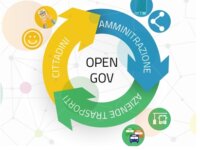Case Study
Libellula – a civic monitoring lab and a format to build and sustain a local civic monitoring…
Libellula is a laboratory for civic monitoring of local public spending and a format to build and sustain a local civic monitoring coalition. The first lab is based in Messina, Sicily. Moving from monitoring a specific case, Libellula aims at building a civic multi-stakeholder coalition which, while monitoring, simultaneously cultivates skills and capabilities of those involved to advocate for transparent and collaborative public spending in order to address the misuse of public money.


